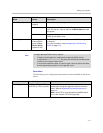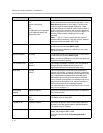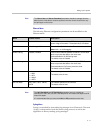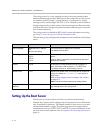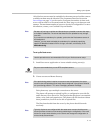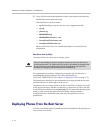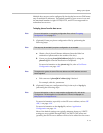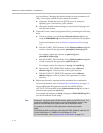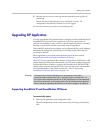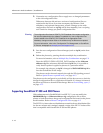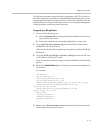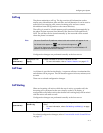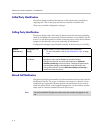
Setting up Your System
3 - 17
5. Monitor the boot server event log and the uploaded event log files (if
permitted).
Ensure that the configuration process completed correctly. All
configuration files used by the boot server are logged.
You can now instruct your users to start making calls.
Upgrading SIP Application
You can upgrade the SIP application that is running on the SoundPoint IP and
SoundStation IP phones in your organization. The exact steps that you
perform are dependent on the version of the SIP application that is currently
running on the phones and the version that want to upgrade to.
The bootROM, application executable, and configuration files can be updated
automatically through the centralized provisioning model. These files are
read-only by default.
Most organization can use the instructions shown in the next section,
Supporting SoundPoint IP and SoundStation IP Phones.
However, if your organization has a mixture of SoundPoint IP 300 and/or 500
phones deployed along with other models, you will need to change the phone
configuration files to continue to support the SoundPoint IP 300 and IP 500
phones when software releases SIP 2.2.0 or later are deployed. These models
were discontinued as of May 2006. In this case , refer to Supporting
SoundPoint IP 300 and 500 Phones on page 3-18.
Supporting SoundPoint IP and SoundStation IP Phones
To automatically update:
1. Back up old application and configuration files.
The old configuration can be easily restored by reverting to the backup
files.
Warning
The SoundPoint IP 300 and 500 phones will be supported on the latest
maintenance patch release of the SIP 2.1 software stream—currently SIP 2.1.2.
Any critical issues that affect SoundPoint IP 300 and 500 phones will be addressed
by a maintenance patch on this stream until the End of Life date for these products.
Phones should be upgraded to BootROM 4.0.0 for these changes to be effective.



